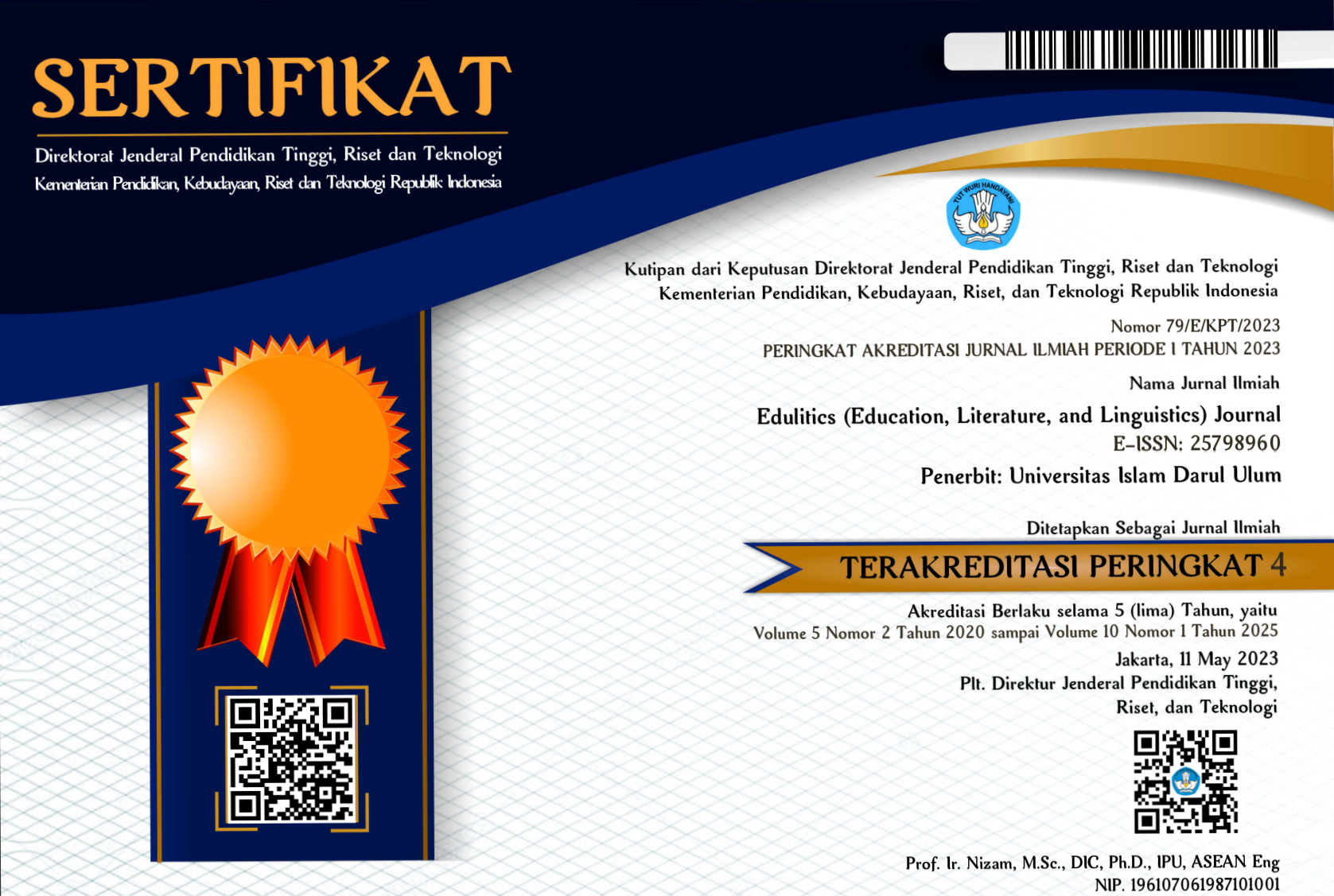Readability of Pre-Tertiary English Course Books in Ghana: Unpacking the Metric-Grader Assessment Interface
Abstract
Readability of texts is generally determined by the application of readability metrics. In most cases, the learner (grader) is not directly involved in assessing the readability of texts assigned to his/her grade. This study sought to determine the extent of reconcilability of metric and grader readability assessment values on the same texts. The textual data was culled from the Global Series English textbook series used in Ghanaian Senior High Schools for the teaching of the English language. Applying the mixed methods research, primary data was also collected from a total of 150 graders across the 3 grades of SHS in Ghana. Using a descriptive research design, within the constructivist research paradigm, the study reveals that metric and grader readability assessments do not agree to a very large extent. Only two percent (2%) of the texts were found to be suitable for their intended grades at the senior high school. The grader readability assessment of texts was found to be at variance with the metric readability assessment. Whilst most graders found most texts to be readable (over 96%), metric readability assessment found the same texts to be unreadable (about 98%). Both metric and grader readability assessments need to be conducted on the same texts to conclude properly on their realistic readability status before assigning them to respective grades. This is a result of the wide metric-grader readability assessment disparity. Where the grader readability assessment reveals a text to be readable and the metric readability assessment finds the same text to be unreadable, the grader assessment should be considered as that is a more realistic assessment.
Downloads
References
Creswell, J.W. (2014). Research Design: Qualitative, Quantitative and Mixed Methods Approaches (4th ed.). Sage.
Damayanti, E., & Zahro, S. K. (2022). Between English and Mandarin: A Contrastive Study of Interrogative Sentences among Indonesian Textbooks. Edulitics (Education, Literature, and Linguistics) Journal, 7(1), 56-66.
Eggins, S. (2004). An introduction to systemic functional linguistics. Continuum.
Elkind, D. (2004). The problem with constructivism. The Educational Forum, 68 (4), 306–312.
Fata, I.A., Komariah, E., & Alya, A.R. (2022). Assessment of Readability level of reading materials in Indonesia EFL Textbooks. Lingua Cultura,16(1),97-104.
Flesch, R. (1948). A new readability yardstick. Journal of Applied Psychology, 32(3), 221–233. https://doi.org/10.1037/h0057532
Frimpong, G.K. (2017). Subordination across Ghanaian and British newspaper editorials: A register perspective. Ghana Journal of Linguistics, 6(1), 75-119. https://dx.doi.org/10.4314/gjl.v6i1.59
Gunning, R. (1952). The technique of clear writing. McGraw-Hill.
Gyasi, W.K., & Slippe, D.P. (2019). Readability of English language textbooks for diploma students of the University of Cape Coast. International Journal of Research,8(1),107-115.
Hakim, A.A., Setyaningsih, E., & Cahyaningrum, D. (2021). Examining the readability level of reading texts in English textbook for Indonesian senior high school. Journal of English language studies, 6(1),18-35.
Halliday, M.A.K. (1985). Spoken and written language. Oxford University Press.
Hidayat, R. (2016). The readability of reading texts on the English textbook. In: International Conference: Role of International Languages toward Global Education System (pp. 120-128), Digital Library IAIN Palangka Raya, Central Kalimantan, Indonesia.
Hidayatillah, N., & Zainil, Y. (2020). The readability of students’ textbook used in semantic and pragmatic course in English language education program of UNP. Journal of English Language Teaching, 9(1), 144-159.
Huda, K., & Masfufah, I. (2021). An Analysis of the Readability Level of Reading Texts in Bahasa dan Sastra Inggris untuk SMA/MA XI Textbook by Using Cloze Test (A Case Study at the Eleventh Class Students of SMA Negeri 1 Sekaran Academic Year 2021/2022). Edulitics (Education, Literature, and Linguistics) Journal, 6(2), 96-106.
Kim, C., Wang, K., & Zhang, L. (2019). Readability of 10‐K reports and stock price crash risk. Contemporary accounting research, 36(2), 1184-1216.
Kolahi, S. & Shirvani, E. (2012). A comparative study of the readability of English textbooks of translation and their Persian translations. International Journal of Linguistics, 4(4), 344-361.
Langeborg, L. (2010). Readability: An analysis of English textbooks for Swedish school years 7-9. [Bachelor thesis]. University of Gavle Repository. https://www.diva-portal.org/smash/record.jsf?dswid=-407&pid=diva2%3A352171
Lincoln, Y.S. & Guba, E.G. (1985). Naturalistic Inquiry. Sage Publications.
Maryansyah, Y. (2016). An analysis on readability of English reading texts for grade IX students at MTsN 2 Kota Bengkulu. Premise: Journal of English Education and Applied Linguistics, 5(1), 69-88.
Nelson, R. (2016). Global Series: English language for senior high schools 1,2&3. Approachers (Ghana) Ltd.
O'Sullivan, L., Sukumar, P., Crowley, R. McAuliffe, E. & Doran, P. (2020). Readability and understandability of clinical research patient information leaflets and consent forms in Ireland and the UK: A retrospective quantitative analysis. BMJ Open 2020, 10(9), e037994 https://doi.org/10.1136/bmjopen-2020-037994
Thorndike, E. L. (1921). The teacher’s word book. Bureau of Publications, Teachers College, Columbia University.
Wiredu, J.F. (2012). A grammar of newspaper editorial language: The complex Sentence. Legon Journal of the Humanities, 23, 75-124.
Wiredu, J.F. (2016). The dependent clause in Ghanaian English pidgin. Research on Humanities and Social Sciences, 6(11), 50-63

This work is licensed under a Creative Commons Attribution-ShareAlike 4.0 International License.
Authors retain copyright and grant the journal the right of first publication with the work simultaneously licensed under a Creative Commons Attribution-ShareAlike 4.0 International License that allows others to share the work with an acknowledgment of the work's authorship and initial publication in this journal.
Authors are able to enter into separate, additional contractual arrangements for the non-exclusive distribution of the journal's published version of the work (e.g., post it to an institutional repository or publish it in a book), with an acknowledgment of its initial publication in this journal.
Authors are permitted and encouraged to post their work online (e.g., in institutional repositories or on their website) before and during the submission process, as it can lead to productive exchanges and earlier and greater citation of published work.







_(1).png)


